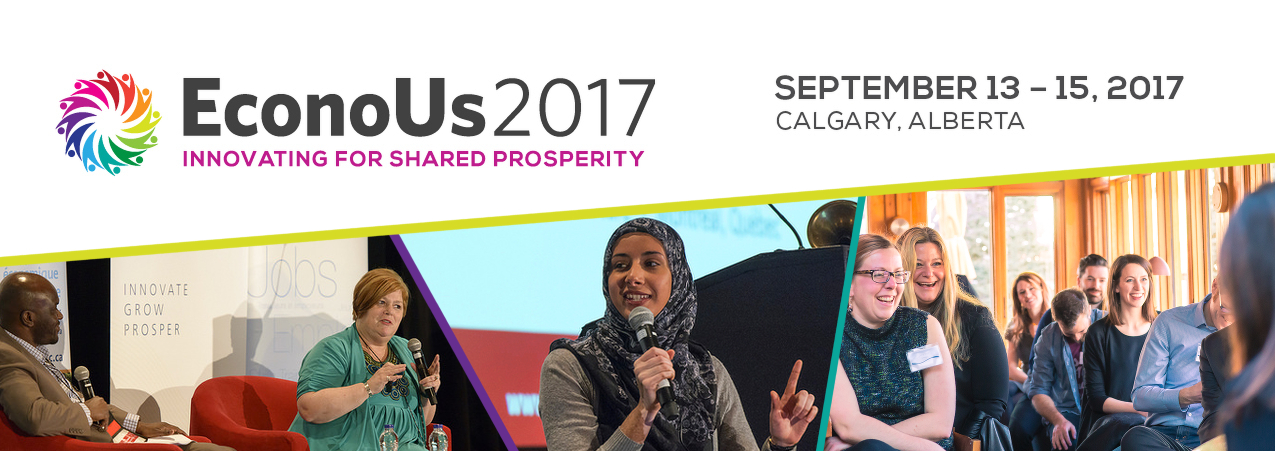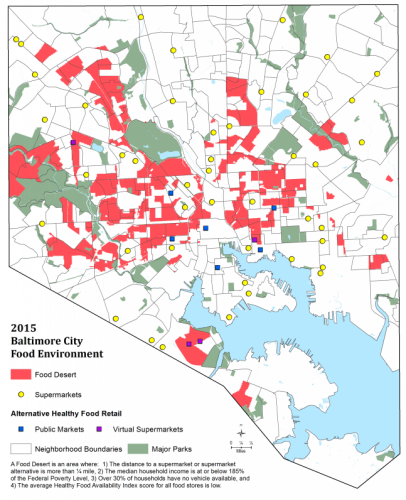The Canadian CED Network hosts a number of “Strengthening Non-Profits” workshops throughout the year on a variety of topics identified through engagement and consultation with our members and partners. Check out the following offerings in 2017. For more information or to let us know about a customized Build-Your-Own workshop you’d like to see, contact Jenna Drabble at jdrabble at ccednet-rcdec.ca.
2017 Strengthening Non-Profits Workshops
Dealing with Conflict in the Community
Tuesday, January 24 | 1:00pm – 4:00pm
Register for Dealing with Conflict in the Community
 This half-day workshop will teach participants about the foundational models for conflict resolution and how to respond to the conflicts that inevitably arise when working in a community setting. Whether it is an interpersonal issue or you are 3rd party to a conflict, this workshop will equip you with the tools to assess a conflict and determine the most appropriate response. Participants are invited to bring low intensity examples of conflicts they are dealing with in their work and use the opportunity of this interactive workshop to talk through challenges and approaches. Participants will also learn about Mediation Services, a community resource, and how it can support the work of community groups.
This half-day workshop will teach participants about the foundational models for conflict resolution and how to respond to the conflicts that inevitably arise when working in a community setting. Whether it is an interpersonal issue or you are 3rd party to a conflict, this workshop will equip you with the tools to assess a conflict and determine the most appropriate response. Participants are invited to bring low intensity examples of conflicts they are dealing with in their work and use the opportunity of this interactive workshop to talk through challenges and approaches. Participants will also learn about Mediation Services, a community resource, and how it can support the work of community groups.
FACILITATOR: Sue Hemphill
Planning for Your Organization’s Financial Sustainability
4 Wednesdays, February 8 & 22, March 8 & 22 | 9:00am – 12:00pm
Register for Planning for Your Organization’s Financial Sustainability
This half-day workshop will teach participants about the foundational models for conflict resolution and how to respond to the conflicts that inevitably arise when working in a community setting. Whether it is an interpersonal issue or you are 3rd party to a conflict, this workshop will equip you with the tools to assess a conflict and determine the most appropriate response. Participants are invited to bring low intensity examples of conflicts they are dealing with in their work and use the opportunity of this interactive workshop to talk through challenges and approaches. Participants will also learn about Mediation Services, a community resource, and how it can support the work of community groups.
FACILITATORS: Sarah Leeson-Klym and Brendan Reimer
 Tools for Great Facilitation
Tools for Great Facilitation
Friday, February 10 | 9:00am – 12:00pm
Register for Tools for Great Facilitation
Many people underplay the role of a facilitator. A great facilitator is generally not noticed, but the work and accomplishments are remembered. Unfortunately when there is poor facilitation, it is often all we notice. The cost of poor facilitation is participant frustration and ideas or decisions that are limiting and even divisive. This workshop will focus on some basic skills in facilitation so that you and your audience can meet your goals.
FACILITATOR: Jan Schmidt
Build & Grow Your Social Enterprise

Monday, February 27 | 9:00am – 12:00pm
Register for Build & Grow Your Social Enterprise
Non-profits and social entrepreneurs are increasingly considering social enterprise – a blended value model where business methods are put to work achieving social impacts. This workshop will explain what social enterprise is and what it’s not, then lead participants through an overview of the typical steps in an enterprise’s early development. The facilitators will introduce participants to tools for deciding if you’re ready to take on an enterprise, how to clarify your idea, test it’s feasibility, plan the business model including legal and financial considerations, start-up and then evaluate and strengthen.
FACILITATORS: Frank Atnikov, Sarah Leeson-Klym, and Gilbert Dion
Community Development as Community Organizing: Building People Power for Social Change

Friday, March 10 | 9:00am – 12:00pm
Register for Community Development as Community Organizing
What does it mean to “organize”? How do we gain “people power” and put it to use? The answers to these questions can help people in communities of all types identify and carry out effective strategies for achieving social change on scales big and small. While organizing is often associated with political parties and issue-based social movement organizations, community development actors can also benefit from thinking strategically about the resources and opportunities that exist within their political landscapes.
FACILITATOR: Joe Wasylycia-Leis
The Power of Story: A Toolbox for Action
Wednesday, April 5 | 9:00am – 12:00pm
Register for The Power of Story
Stories are a powerful way to connect, to engage, and to motivate people to take action. This three-hour workshop is designed to give organizations the tools they need to: discover the stories that convey the raison d’être for their existence, share the impact they have in the community, use stories as a strong call to action. Participants will get hands-on practice, listen to great examples of powerful storytelling, and take away tools that will help them shape their story for different audiences.
FACILITATOR: Cate Friesen
Stronger Outcomes Statements for Better Results

Wednesday, May 3 | 9:00am – 12:00pm
Register for Stronger Outcomes Statements for Better Results
Strong, well-written outcomes can focus your program’s activities and make it easier to evaluate your effectiveness. In this half-day workshop, you will get step-by-step guidance in writing practical, measurable outcomes so that you can better communicate your goals to stakeholders. You will find out about different ways of organizing outcomes, and learn how to use performance indicators as supporting evidence to illustrate your successes.
FACILITATOR: Margerit Roger
Understanding Fundraising

Thursday, June 8, 2017 | 1:00pm – 4:00pm
Register for Understanding Fundraising
Strong, well-written outcomes can focus your program’s activities and make it easier to evaluate your effectiveness. In this half-day workshop, you will get step-by-step guidance in writing practical, measurable outcomes so that you can better communicate your goals to stakeholders. You will find out about different ways of organizing outcomes, and learn how to use performance indicators as supporting evidence to illustrate your successes.
FACILITATORS: Mikuska Group Inc. – Laura and Julie Mikuska
 In response to the economic instability facing the Town of Churchill and surrounding region following the announcement of the closure of the Port of Churchill and associated reductions in rail service, Community Futures Manitoba (CFM), a member of the Canadian CED Network, has announced a $4.6 Million fund.
In response to the economic instability facing the Town of Churchill and surrounding region following the announcement of the closure of the Port of Churchill and associated reductions in rail service, Community Futures Manitoba (CFM), a member of the Canadian CED Network, has announced a $4.6 Million fund.





 CCEDNet has joined
CCEDNet has joined  This half-day workshop will teach participants about the foundational models for conflict resolution and how to respond to the conflicts that inevitably arise when working in a community setting. Whether it is an interpersonal issue or you are 3rd party to a conflict, this workshop will equip you with the tools to assess a conflict and determine the most appropriate response. Participants are invited to bring low intensity examples of conflicts they are dealing with in their work and use the opportunity of this interactive workshop to talk through challenges and approaches. Participants will also learn about Mediation Services, a community resource, and how it can support the work of community groups.
This half-day workshop will teach participants about the foundational models for conflict resolution and how to respond to the conflicts that inevitably arise when working in a community setting. Whether it is an interpersonal issue or you are 3rd party to a conflict, this workshop will equip you with the tools to assess a conflict and determine the most appropriate response. Participants are invited to bring low intensity examples of conflicts they are dealing with in their work and use the opportunity of this interactive workshop to talk through challenges and approaches. Participants will also learn about Mediation Services, a community resource, and how it can support the work of community groups.
 Tools for Great Facilitation
Tools for Great Facilitation




 A new construction project in urban East Baltimore aims to use federal funding to achieve a number of progressive goals. Volunteers of America Chesapeake has leased space to
A new construction project in urban East Baltimore aims to use federal funding to achieve a number of progressive goals. Volunteers of America Chesapeake has leased space to 
 Erin Rubin is the Editorial Coordinator & Community Builder at the Nonprofit Quarterly. Previously, she worked as an administrator at Harvard Business School and as an editorial project manager at Pearson Education, where she helped develop a digital resource library for remedial learners. Erin has also worked with David R. Godine, Publishers, and the Association of Literary Scholars, Critics, & Writers. As a member of the TEDxBeaconStreet organizing team, she works to communicate innovative ideas and translate them into action.
Erin Rubin is the Editorial Coordinator & Community Builder at the Nonprofit Quarterly. Previously, she worked as an administrator at Harvard Business School and as an editorial project manager at Pearson Education, where she helped develop a digital resource library for remedial learners. Erin has also worked with David R. Godine, Publishers, and the Association of Literary Scholars, Critics, & Writers. As a member of the TEDxBeaconStreet organizing team, she works to communicate innovative ideas and translate them into action.





 The United Nations Association in Canada (UNA-Canada) and the British Council Canada are pleased to launch
The United Nations Association in Canada (UNA-Canada) and the British Council Canada are pleased to launch  On November 28th, 2016, Alexandra Mendès, Member of Parliament for Brossard – Saint-Lambert, tabled
On November 28th, 2016, Alexandra Mendès, Member of Parliament for Brossard – Saint-Lambert, tabled  The Indigenous Women in Community Leadership program is a four-month (May 1 – August 25, 2017) education program offered by Coady Institute’s
The Indigenous Women in Community Leadership program is a four-month (May 1 – August 25, 2017) education program offered by Coady Institute’s